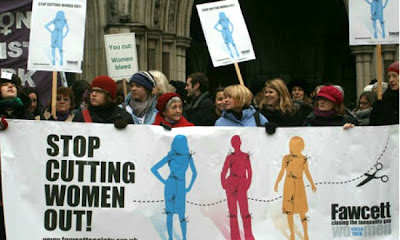Ted Honderich made the opening speech in a debate in the Oxford Union on 29 January 2010, the evening of the day when Tony Blair appeared at the Chilcot inquiry into the Iraq war. The motion was that this House believes that in politics, money talks loudest. The motion was carried. Here is a slight synopsis of the full speech online at Ted Honderich’s website.
“The motion before us two parts, one explicit and one implicit. There is the explicit proposition of fact, and there is the implication of it—that it raises a question of rightness, or indeed isn’t right. Talking openly of what is right or wrong is unusual in this time in England, and may seem curious, perhaps moralistic, maybe innocent or immature, anyway not familiar.
Cant, in particular cant by our democratic politicians, is the dismal order of the day, along with the brazen policy that the response to a question is not an answer but an evasion of it. The cant and the evasion have reduced the clarity and hence the intelligence of public discussion, indeed brought it to its lowest state in 50 years. A society in decline since 1979 has declined further.
Instead of speaking of right and wrong, of what ought not to happen, the political class declares or intones the cant that this or that is “unacceptable”. They are saying that is wrong—what we must not do. They prefer to be inexplicit instead. When you say plainly that something is wrong, or right, you are expected to produce a reason, an argument, something clear headed.
So, what are the things that according to the motion money talks louder than in politics? One answer is truth. It is not only the first victim of war. A second thing that money talks louder than is the logic of ordinary intelligence. That consists in clarity, analysis, relevance, consistency, validity, and completeness, not leaving things out. Truth and logic bring along some humanity with them. You can’t be truthful and logical without humanity—humanity being what is right.
Being simple minded, which our political class is, is also to be avoided. One way of being simple minded about the motion in front of us is to think the part that is the factual proposition can be settled just by some figures. It can’t be settled that way, useful as some general figures are.
It is true that the economically best off tenth of population in Britain and America have something like 70% of the wealth, and the worst off tenth has as good as none. As for income, the best off tenth has about 30% or 40%, and the worst off 2% or 3%. That means that the poorest have nothing to spend on politics, indeed no time left to engage in it after getting their 2 or 3%, and the very richest have a lot.
I say, without fear of any economist or student of the dismal science in this house, the dismal science that never gets around to quantifying what is fundamental, that the richest have more than 1000 times the political influence and power of the poorest. Remember that the poorest have as good as no wealth. 70 times zero is infinitely less than 70 times 1. What does the 1000 times more political influence and power do? More than corruption in the House of Commons, and more than the fact of lobbying even on an American scale. More than industries and interests infesting the regulation of themselves.
The 1000 times more political influence and power can make and maintain what can mildly be called a certain convention of thought and feeling in a society, mainly a successful pretense about what is necessary and what is possible. It consists in illusions upon illusions. About war, classes, the economy, public services, private profit and the profitization of things, taxation, banks, competition, co-operation, foreign ownership, utilities, health, education, politics itself, ideologies and religions, terrorism. Today, there is the illusion about the need to reduce public spending rather than reduce private profiting.
Illusions work better than an army and police on motorbikes. Owning newspapers and paying for ordinary advertisements in them is part of the convention. So is a government broadcasting service. A compliant church despite a brave Archbishop is another part. There is no need for conspiracy, although there is some of that, to make the whole thing intentional.
The illusions bring to mind the other part of the political cant about the “unacceptable”. Our dim but not too dim political class, when they intone “unacceptable”, don’t only mean that something is wrong, they also mean it is somehow unthinkable. Its ambiguity saves them from being challenged either about something’s being wrong or its being or its being believed necessary or impossible by all the relevant persons.
Let us think a little, which you’re allowed to do in a university, even in a debate, by asking what can best be said for democracy. What can best be tried in its justification? The hope is that it is a better decision procedure for a society than any other, for a particular reason—in plain English, it is that two heads are better than one, and more better are than two. What is in heads, according to this argument, is different and compensating kinds of knowledge, different experiences of a society, different wants. But it only works if what is in the heads gets equal and free expression.
In our hierarchic democracies, there is nothing of the sort, nothing remotely like equal and free expression. So there can be no reasonable assumption that our democracies are right about anything at all—social goods, or profitization against co-operation, or terrorism, or our own terrorist war. So put aside the fiction, indeed the illusion, of a democratic guarantee of good policies.
How should we go about judging the result of money talking loudest in our democracy—thinking about that outcome? What principle or other method should we use? Our political class never asks how you should go about judging the outcome. Should we do it by the viciousness of the tradition of conservatism, New Labour wholly being within it? Conservatism is no more a political tradition of self interest than any other, but the politics has no principle of right and wrong at all to support its self interest. Liberalism has better impulses than conservatism, but it is without a real principle to give content to its better impulses. It is without a will to act on those impulses, including its decency in opposing a terrorist war.
Should you judge the result of money in politics by the principle of the Utilitarians, that what is right is what produces the greatest total of happiness, well being or satisfaction—no matter how it is shared out, even if the biggest total rests on some people, a class at the bottom, having lives that are really nasty, British and short? Should you throw psychoanalysis and neuroscience into the plan, as they now say at the London School of Economics, to make people happier without changing the world that was making them unhappy?
Maybe you should try instead a principle of judgement heard of in Cambridge sometimes these days? That is the philosopher Immanuel Kant’s Categorical Imperative. It tells you to treat everybody not only as a means but also as an end. It’s all about respect. Its clearest upshot is that you should nod decently to the homeless fellow in the street when you don’t buy a copy of The Big Issue magazine he sells for a crust.
So, how should we go about judging the result of money talking loudest in our politics? What sums up what is right on any subject anywhere, is the Principle of Humanity. It is that what is right is what according to the best judgement and information gets and keeps people out of bad lives. Bad lives are defined in terms of deprivation of the great human goods, denial of the fundamental desires of human nature—six of them—a decent length of life, bodily well being, freedom and power, respect and self respect, goods of relationship, the goods of culture.
“Money talking loudest” is a standing violation of the Principle of Humanity. It denies every great human good, every denial aided by suppression of truth and evasion of logic. If you’re not pushy or a pusher, you live less long for a start, you have less consciousness, and you suffer pain, constraint, weakness, disdain, self disdain. Your children don’t learn. You read Murdoch newspapers that stop you from escaping the stupidity owed to your ignorance.
Earlier today Blair, a man who managed this democracy into a terrorist war, the Iraq war, insulting the decency that remains in this democracy, appeared before a weak committee, a wretched committee of old boys neither capable of questioning him effectively nor willing to. Not a court. Not Nuremberg. Blair sought today, by the audacity of a shyster lawyer unconstrained by a judge, his policy in the House of Commons, to blunt the truth that he is a war criminal, a criminal against humanity. Old Germans around Nuremberg can feel less bad tonight about the German past. They can say that Nuremberg happened.
In Blair’s wholly intentional killing of innocents in and after the war, wholly intentional since wholly foreseeable, and in his wholly intentional causing of fear supposed to be the stuff of only terrorism, and in everything else of his New Labour, Blair has been and is a creature of money talking. He has been a creature who listens to it talking, goes to ask for more, and pays for it.
What should we do? What should be done about all the denials of the great goods, about taking from people what we all desire? What should be done about the monstrous selfishness? Truth and logic is all we have to rely on, some say. But surely it can’t be the only hope. That would be too terrible. A colonel of the British Army, at the time of English civil war, said:
For really I think the poorest he that is in England hath a life to live, as the greatest he…Thomas Rainsborough”
Honderich wonders whether revolution could be an answer, or mass civil disobedience, much more insistent than the large demonstrations at the outset of the Iraq war, or a boycott of the market. Any such insistent demonstrating, or a colonel driving a tank into Parliament Square is likely to be what a neoconservative government like this New Labour one would love. They could institute martial law, and declare plainly the fascism they have hitherto been hiding but preparing for.
The eastern countries India and China are becoming serious rivals to the US and Europe. The financial system, as Honderich shows, is getting more and more openly corrupt, and politics too. Society is crumbling and revolution, consisting of the components Honderich mentioned looking more likely, but it will have to fight off fascism first, or somehow force some government to scrap the mass of repressive legislation New Labour has introduced. At present the British are sleepwalking. Mostly they are ignorant of what is going on as long as they have Murdoch’s media, reality TV and celebrities, and can still borrow on credit. They have a rude shock ahead.








